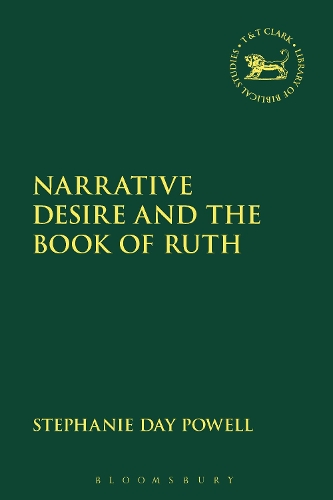
Narrative Desire and the Book of Ruth
(Paperback)
Available Formats
Publishing Details
Narrative Desire and the Book of Ruth
By (Author) Dr Stephanie Day Powell
Bloomsbury Publishing PLC
T.& T.Clark Ltd
22nd August 2019
22nd August 2019
United Kingdom
Classifications
Tertiary Education
Non Fiction
Criticism and exegesis of sacred texts
222.3506
Physical Properties
Paperback
224
Width 156mm, Height 234mm
308g
Description
Stephanie Day Powell illuminates the myriad forms of persuasion, inducement, discontent, and heartbreak experienced by readers of Ruth. Writing from a lesbian perspective, Powell draws upon biblical scholarship, contemporary film and literature, narrative studies, feminist and queer theories, trauma studies and psychoanalytic theory to trace the workings of desire that produced the book of Ruth and shaped its history of reception. Wrestling with the arguments for and against reading Ruth as a love story between women, Powell gleans new insights into the ancient world in which Ruth was written. Ruth is known as a tale of two courageous women, the Moabite Ruth and her Israelite mother-in-law Naomi. As widows with scarce means of financial or social support, Ruth and Naomi are forced to creatively subvert the economic and legal systems of their day in order to survive. Through exceptional acts of loyalty, they, along with their kinsman Boaz, re-establish the bonds of family and community, while preserving the line of Israels great king David. Yet for many, the story of Ruth is deeply dissatisfying. Scholars increasingly recognize how Ruths textual gaps and ambiguities render conventional interpretations of the books meaning and purpose uncertain. Feminist and queer interpreters question the appropriation of a womans story to uphold patriarchal institutions and heteronormative values. Such avenues of inquiry lend themselves to questions of narrative desire, that is, the study of how stories frame our desires and how our own complex longings affect the way we read.
Author Bio
Stephanie Day Powell is a Lecturer at Manhattan College in New York, USA.
